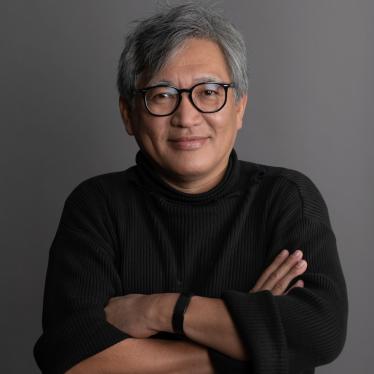When Jozias van Aartsen, the mayor of The Hague, unveiled the Munirpad (Munir Path) in a quiet neighbourhood on April 14, he did more than honour the slain Indonesian human rights defender Munir Thalib, writes Andreas Harsono of Human Rights Watch.
The naming of the Munirpad was also an uncomfortable reminder to the Indonesian government of its failure to bring to justice those who had ordered Munir’s killing on September 7, 2004.
Munir’s widow, Suciwati, told reporters before she left Jakarta to attend the ceremony: ‘It’s ironic when the Netherlands recognises [Munir’s] achievement, but Indonesia, his own country, gives impunity to the perpetrators [of his murder].’
Sceptical
Suciwati has reason to be sceptical about the Indonesian government’s commitment to fully investigate Munir’s murder. Despite former Indonesian President Susilo Bambang Yudhoyono’s promise in 2004 that finding Munir’s killers was ‘the test of our history,’ the government has failed to do so.
There is certainly no shortage of possible suspects. As Indonesia’s best-known human rights defender, Munir made many powerful enemies among people with abusive records.
Munir founded the highly effective Commission for Disappeared Persons and Victims of Violence (Kontras) to campaign against enforced disappearances. In 2002, Munir established the Jakarta-based human rights research group Imparsial.
Passion
Underlying all of Munir’s work was a passionate pursuit of justice in a country whose three decades of authoritarian rule under Suharto had run roughshod over the rule of law and permitted the killers of more than 500,000 alleged ‘communists’ in 1965-66 to avoid prosecution for their heinous crimes.
But that activism ended when Munir died from arsenic poisoning. The arsenic was allegedly added to his orange juice on a Garuda Indonesia flight from Jakarta to Amsterdam. An Indonesian police investigation resulted in the conviction of three Garuda employees.
On December 20, 2005, a Jakarta court sentenced an off-duty Garuda pilot, Pollycarpus Budihari Priyanto, who had moved Munir from economy to business class, to 14 years in prison for administering the arsenic. Pollycarpus was released on parole in 2014.
An Indonesian court subsequently sentenced Indra Setiawan, Garuda’s then chief executive officer, and Rohanil Aini, Garuda’s then chief secretary, to one year jail terms for producing falsified documents that let Pollycarpus get on that flight.
Evidence
Despite those convictions, there is troubling evidence that the prosecutions of those three Garuda staff failed to uncover the full circumstances of Munir’s killing and that the masterminds remain at large.
Sceptics point to the fact that Pollycarpus was also an agent for the State Intelligence Agency (Badan Intelijen Negara, or BIN). Despite allegations that linked the order for Munir’s murder to the agency’s former deputy director, major general Muchdi Purwopranjono, an Indonesian court cleared him of responsibility in Munir’s killing in December 2008 due to lack of evidence after trial proceedings dogged by allegations of witness intimidation.
Activists have alleged that the government withheld key evidence during the trial, including recorded mobile phone conversations between Muchdi and Pollycarpus.
Hampered
In September 2009, Human Rights Watch said that the evidence presented during the Muchdi trial was compelling, but that the prosecution was hampered by the systematic retraction of sworn statements to the police and pressure on the South Jakarta court from Muchdi’s supporters.
Witnesses withdrew statements they had made to the police, claiming to have forgotten basic facts, or failed to appear in court. Most were former or current intelligence officers or retired members of the military.
Indonesia’s President Joko Widodo has an opportunity to correct the failure of his predecessor, Yudhoyono, to investigate Munir’s killing adequately. The president could start by ordering the National Police to surrender any evidence withheld or overlooked during the trials of both Pollycarpus and Muchdi, as well as investigating allegations of witness intimidation related to the dismissal of charges against Muchdi in 2008.
If Widodo fails to act, the Munirpad in The Hague will remain a reminder of the long road to justice for Indonesia’s murdered rights defender Munir.
Andreas Harsono is Indonesia researcher at Human Rights Watch.









